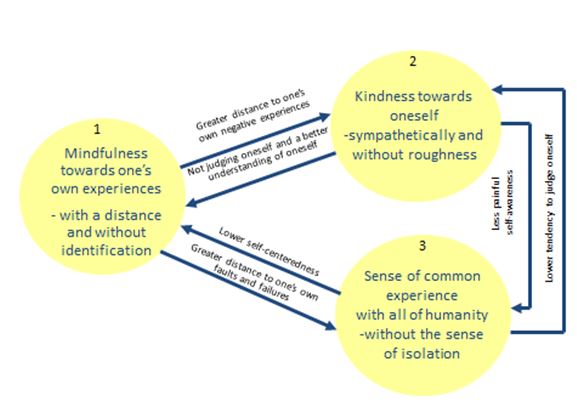Nurturing the Next Generation of Counseling Educators: Exploring the New Ph.D. in Counseling Education
Introduction
Counseling is a vital profession that provides support, guidance, and healing to individuals facing life's challenges. As the demand for well-trained counseling educators rises, the field of counseling education is evolving to meet this need. In this article, we delve into the world of the new Ph.D. in Counseling Education, examining the significance of this advanced degree, the transformative curriculum it offers, and the profound impact it can have on the future of counseling and mental health education.
1. The Importance of Counseling Education
Counseling educators play a critical role in shaping the next generation of counselors and mental health professionals. They are responsible for imparting theoretical knowledge, clinical skills, and ethical principles to their students. The new Ph.D. in Counseling Education recognizes the significance of this role and prepares graduates to become effective educators and leaders in the field of counseling.
2. Advancing the Field of Counseling Education
The emergence of the new Ph.D. in Counseling Education represents a significant step forward in advancing the field of counseling education. This doctoral program is designed to equip counselors with the expertise and scholarly skills needed to excel in academia, research, and the development of innovative counseling practices.
3. The Curriculum: Blending Theory and Practice
The curriculum of the new Ph.D. in Counseling Education strikes a balance between theoretical knowledge and practical experience. Core courses cover advanced counseling theories, research methodologies, statistics, and assessment techniques. Additionally, students have the opportunity to specialize in areas such as clinical supervision, counseling pedagogy, program evaluation, and counselor advocacy.
4. Research and Scholarship
Research and scholarship are integral components of the Ph.D. in Counseling Education program. Doctoral candidates engage in original research projects that contribute to the advancement of counseling knowledge and practice. Through their research, they explore topics related to counseling effectiveness, counselor education, mental health interventions, and counseling ethics.
5. Teaching Practicum and Mentorship
To prepare students for their future roles as educators, the program includes a teaching practicum where doctoral candidates gain hands-on experience in teaching counseling courses under the guidance of experienced mentors. This practicum nurtures their teaching skills, fosters creativity in instructional approaches, and instills a commitment to fostering students' personal and professional growth.
6. Supervision and Leadership Development
Supervision is a crucial aspect of counselor education, and the new Ph.D. program emphasizes the development of effective supervision skills. Doctoral candidates learn to provide clinical supervision to counselors-in-training, ensuring ethical and competent counseling practice. Additionally, they acquire leadership skills to excel in academic and administrative roles within educational institutions.
7. Ethical Considerations and Advocacy
Ethical considerations and counselor advocacy are emphasized throughout the Ph.D. in Counseling Education program. Students critically examine ethical dilemmas and learn to address them ethically and professionally. They are also encouraged to advocate for the rights and well-being of clients, students, and the counseling profession as a whole.
8. Multicultural Competence and Social Justice
Given the diverse nature of counseling practice, the program places significant emphasis on multicultural competence and social justice. Doctoral candidates explore the impact of culture, race, gender, sexual orientation, and other social factors on the counseling process. They develop skills to provide culturally sensitive counseling and advocate for inclusivity and equity in counseling services.
9. Contribution to Counseling Research
The new Ph.D. in Counseling Education program contributes to the body of counseling research through the scholarly work of its students and faculty. Doctoral candidates publish their research findings in reputable journals, present at national conferences, and contribute to the development of evidence-based counseling interventions.
10. Career Opportunities for Graduates
Upon completing the Ph.D. in Counseling Education, graduates are prepared for a diverse range of career opportunities. Many pursue academic positions as faculty members in counseling programs, where they train future counselors and conduct research. Others assume leadership roles in counseling organizations, government agencies, or nonprofit organizations dedicated to mental health advocacy and education.
Conclusion
The new Ph.D. in Counseling Education marks a significant milestone in the advancement of the counseling profession. By equipping counseling educators with advanced knowledge, teaching skills, and research expertise, this doctoral program ensures that the field of counseling education continues to thrive and evolve. Graduates of the program are poised to become leaders in counselor education, research, and advocacy, shaping the future of counseling and mental health education. As they nurture the next generation of counselors, these doctoral scholars are instrumental in promoting mental well-being, healing, and social justice within their communities and beyond.


Posting Komentar untuk "Nurturing the Next Generation of Counseling Educators: Exploring the New Ph.D. in Counseling Education"